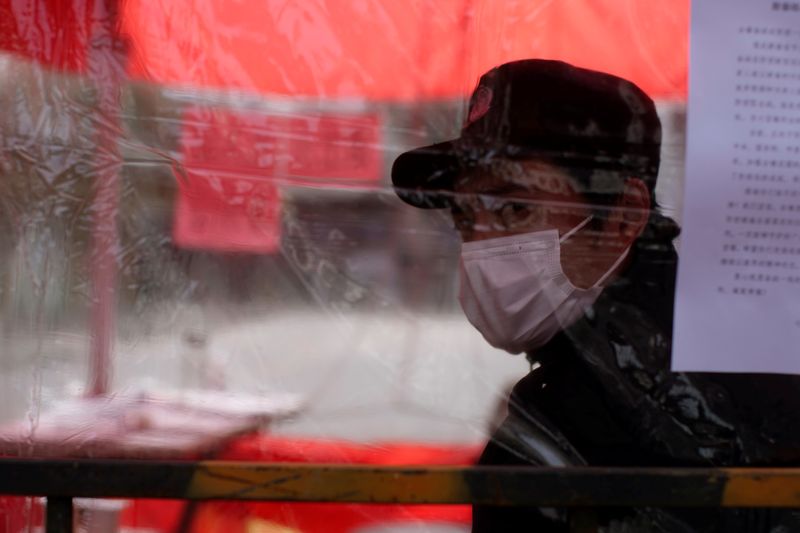
BEIJING (Reuters) – China is expected to cut pension contributions and insurance fees by more than 500 billion yuan ($71.27 billion) this year, government officials said on Thursday, as it seeks to help companies weather the coronavirus outbreak.
The forecast follows a government pledge this week to reduce or exempt companies across the country from pension contributions, jobless and work-injury insurance for a period of time.
“Based on preliminary estimates, we expect the cuts in three kinds of social insurance fees to exceed 500 billion yuan,” You Jun, vice minister at the Ministry of Human Resources and Social Security, told a news briefing, adding that the impact of the measures would surpass changes made last year.
Under the exemptions announced this week, firms in Hubei province, the epicenter of the outbreak, will not have to pay pensions, jobless and work-injury insurance until June.
Small firms in other provinces will be exempt from paying pensions, jobless insurance and work injury insurance until June, while payments by large firms will be reduced by half until April.
You said the government could ensure pension funds and other social insurance would be paid in full and on time despite the exemptions and reductions.
Separately, Yu Weiping, vice finance minister, told the briefing that the impact of the fee cuts on government revenue would be manageable.
“In the short-term, those measures will lead to a reduction in revenue of government funds, but in the long-run, it will reduce the burden on companies,” Yu said.
“With the improvement of corporate performance, China’s tax base can be expanded and the fiscal revenue situation will gradually improve.”
China would continue with a proactive fiscal policy and step up its quality and efficiency, Yu added.
To fight the virus, authorities have imposed a host of strict containment measures but they have slowed businesses across the country, with companies unable to resume production or restore output to normal levels after the Lunar New Year holiday because of a lack of workers.
“The current epidemic will inevitably have an impact on employment … and there are also some firms facing relatively huge operation pressure, and there is also supply and demand mismatch in the labor market,” You said.
But he said the impact would be short-term.
Fusion Media or anyone involved with Fusion Media will not accept any liability for loss or damage as a result of reliance on the information including data, quotes, charts and buy/sell signals contained within this website. Please be fully informed regarding the risks and costs associated with trading the financial markets, it is one of the riskiest investment forms possible.



